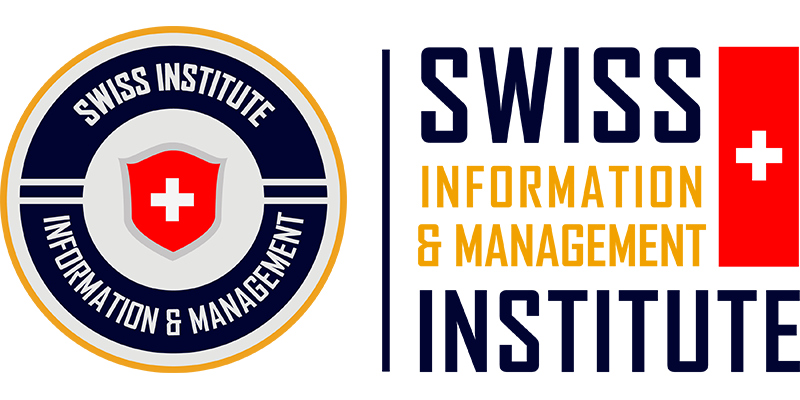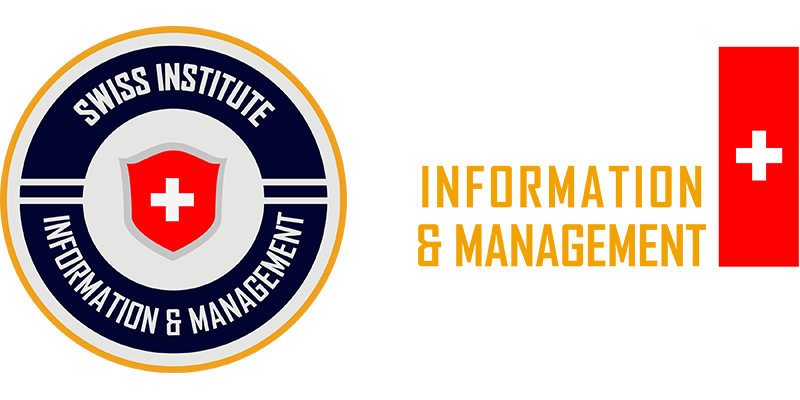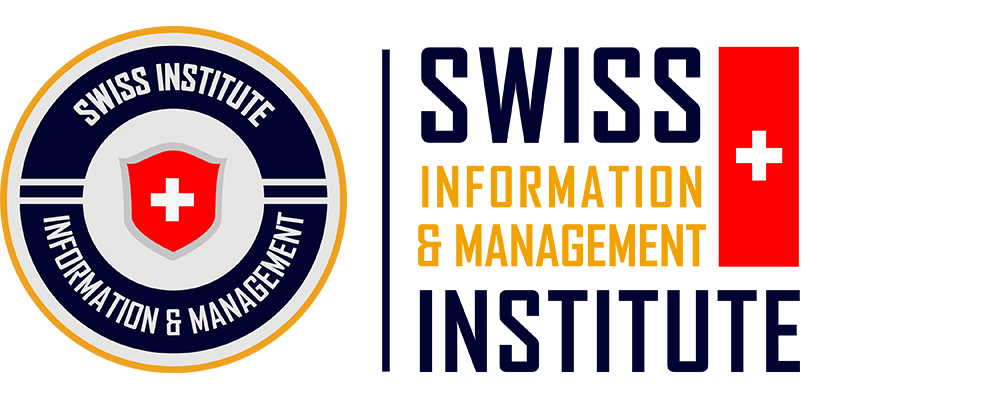Diploma in Airlines Cabin Crew Services
Parallel Program, which does not interrupt current work or studies
The Diploma in Airlines Cabin Crew Services program provides specialized knowledge at MQF Level 4 – equivalent to Level 5 of the European Qualifications Framework (EQF) – along with practical skills in areas such as: in-flight and premium lounge services, flight safety, cabin operation procedures, cabin crew professional skills, cabin crew demeanor, industry-standard grooming, as well as knowledge of aviation safety and security.
“The Diploma in Airlines Cabin Crew Services program is a parallel learning program which does not disrupt the student’s current work or studies. The program combines online theoretical modules, practical modules on campus, aviation industrial visit, and the chance to receive an internship recommendation letter from an airline should the student choose to pursue this option.”
Along with globally recognized qualification, the SIMI Swiss Master program understands what students need:
- Fully Accredited & Recognized
- Full-time Student Visa (Optional)
- English Certificate provided within six months of starting the program
- Receive a qualification from Netherlands Maritime University College – a qualification with international recognition
- The learning mode combines Live Class with study abroad and networking activity at NMUC’s Campus
- Academic Support While Studying
- Expand your business network
- Tuition fee support & Investment Efficiency
Qualifications within a Diploma in Airlines Cabin Crew Services Program:
- Level 5 Swiss Diploma in Aviation Hospitality Management from Swiss Information and Management Institute
- Diploma in Airlines Cabin Crew Services from the Netherlands Maritime University College
Fully Accredited & Recognized
SIMI’s partner is a university recognized by the Ministry of Higher Education (DKU041(J)), and the program is nationally accredited by the Malaysian Qualifications Agency (MQA/PA16847).
Online Learning & Study Abroad
This program combines online learning with study abroad at the Malaysia campus, offering students flexible education alongside valuable international experience.
Subsidized Tuition Fees
The program is subsidized, making the tuition significantly more affordable compared to the original programs in Asia.
Academic Support Systems
The academic, research and language support system helps students overcome challenges so they can focus solely on excelling in their studies.
Theory Modules
1. Introduction to Airlines
Overview
- Explore the role and development history of the aviation industry.
- Learn about the structure, organization, and core operations of airlines.
Unit Aims
- Understand the foundations of the aviation industry and its key components.
- Identify different service types and main operations of airlines.
- Apply knowledge to practical contexts within the aviation sector.
2. Aircraft Types and Cabin Operation
Overview
- Explore common types of aircraft and cabin operations.
- Understand cabin operation processes and safety procedures.
Unit Aims
- Distinguish between aircraft types and their roles in air transport.
- Comprehend cabin safety requirements and procedures.
- Apply knowledge to practical working environments on board.
3. Basic Etiquette
Overview
- Introduction to basic etiquette principles in the aviation industry.
- Understand the importance of cultural etiquette in an international environment.
Unit Aims
- Grasp and apply professional communication and etiquette principles.
- Develop effective communication skills in a multicultural environment.
- Practice professional etiquette in airline service settings.
4. Introduction to Tourism and Hospitality Industry
Overview
- Learn about the tourism and hospitality industry and current trends.
- Discover the relationship between tourism and the aviation industry.
Unit Aims
- Grasp fundamental knowledge of the tourism and hospitality sector.
- Understand the role of aviation in tourism development.
- Apply knowledge to cross-sector service activities.
5. Introduction to Air Transport
Overview
- Explore the air transport system and its role in global trade.
- Learn about the operational and management processes of air transport.
Unit Aims
- Understand the structure of modern air transport systems.
- Analyze factors affecting air transport efficiency.
- Apply knowledge to optimize transport operations.
6. Airport Operation and Ground Handling
Overview
- Explore airport operations and ground handling services.
- Learn about security processes, baggage handling, and passenger support.
Unit Aims
- Understand airport operation processes and ground services.
- Recognize the role of safety and security in airport operations.
- Analyze processes and improve ground handling services.
7. Airline Business Communication
Overview
- Explore communication skills in professional aviation environments.
- Understand the role of communication in coordination and customer service.
Unit Aims
- Develop effective communication skills in the airline industry.
- Understand principles and techniques of customer service communication.
- Apply communication skills in practical airline operations.
8. Introduction to Flight Services
Overview
- Introduction to in-flight services, including meal service and customer care.
- Learn about procedures and service standards on board.
Unit Aims
- Understand the procedures for in-flight service.
- Develop professional customer service skills.
- Meet service standards in the aviation industry.
9. Aviation Law
Overview
- Introduction to aviation law and related legal regulations.
- Explore the rights and obligations of parties in the aviation sector.
Unit Aims
- Understand basic knowledge of aviation law and legal regulations.
- Identify rights and obligations in the international aviation context.
- Apply legal knowledge to professional practice in the aviation industry.
Practical Modules
Phase 1
1. Personal Grooming
Overview
- Explore the importance of personal grooming and professional appearance in the aviation industry.
- Understand grooming standards and how they contribute to positive passenger experiences.
Unit Aims
- Understand grooming expectations and personal presentation standards for cabin crew.
- Develop habits and skills for maintaining a professional appearance.
- Apply grooming standards to enhance passenger trust and airline image.
2. Food Services in the Airline Industry
Overview
- Learn about in-flight meal services and operational standards.
- Understand how food safety and hygiene are maintained during flights.
Unit Aims
- Understand the processes and quality standards of food services onboard.
- Apply hygiene and food safety protocols in practical situations.
- Develop skills for delivering high-quality in-flight food service.
3. Customer Service and Passenger Interaction
Overview
- Explore best practices for customer service in the airline industry.
- Understand passenger needs and how to provide an exceptional flight experience.
Unit Aims
- Develop communication skills for interacting with passengers.
- Learn techniques to manage passenger expectations and resolve issues.
- Apply customer service principles to ensure positive passenger experiences.
Phase 2
1. Medical Emergencies Onboard the Aircraft
Overview
- Learn about types of medical emergencies that may occur during flights.
- Understand emergency response procedures and crew responsibilities.
Unit Aims
- Identify common onboard medical emergencies and appropriate responses.
- Develop practical skills in handling medical incidents while ensuring passenger safety.
- Apply first aid knowledge and procedures in flight-specific scenarios.
2. Special Procedures for Inflight Contingencies
Overview
- Explore inflight contingency procedures, including turbulence, decompression, and security threats.
- Understand crew roles in handling unexpected situations.
Unit Aims
- Understand inflight contingency procedures and crew responsibilities.
- Develop problem-solving skills for handling emergencies and minimizing disruptions.
- Apply contingency procedures to maintain passenger safety and comfort.
3. Crew Responsibility and Cooperation
Overview
- Understand the importance of teamwork and effective communication among crew members.
- Learn how coordination and mutual support enhance flight safety and service.
Unit Aims
- Develop teamwork and cooperation skills essential for cabin crew operations.
- Learn how to communicate effectively with team members in various scenarios.
- Apply strategies for maintaining a collaborative and safe flight environment.
Additional Learning Activity
Aviation Industrial Visit
Overview
- Explore the real-world working environment of the aviation industry through industrial visits.
- Learn about operational processes and management at airports, airlines, and related organizations.
Unit Aims
- Understand the structure and functions of the aviation industry through hands-on experience.
- Analyze factors affecting operations in real-world settings.
- Develop observational and evaluative skills to apply academic knowledge to professional practice.
Entry requirements & Learning methods
1. Entry Requirements
In addition to the entry requirements, candidates applying to the program are also assessed for their suitability by the admissions committee before joining the program to ensure that they can acquire and benefit from the program.
Entry requirements:
To enroll this program, learners must possess the criteria below:
- Attained a Level 3 Diploma under the NQF/QCF/RQF system or its equivalent.
English requirements:
If a learner is not from a predominantly English-speaking country, proof of English language proficiency must be provided through one of the following:
- IELTS: 6.0
- TOEFL iBT: 60
- Pearson Test of English: 59
- Cambridge English Qualifications and Test: 169
Additional Entry Requirements:
- Documented personal and family medical history
- Physical and Mental Examination
- Ear, Nose and Throat examination and Hearing
- Eye examination, Visual Acuity and Colour Perception
- Free from any abnormality, congenital or acquired
- Free from any active, latent, acute or chronic disability
- Free from any wound, injury or sequelae from operation or any effect or side-effect of any prescribed or non-prescribed therapeutic, diagnostic or preventive medication taken, such as would entail a degree of functional incapacity which is likely to interfere with the safe operation of an aircraft or with the safe performance of duties.
Please note:
- In case of not having an English proficiency certificate, the candidate can provide it within 6 months.
- SIMI and NMUC reserve the right to make admissions decisions based on the requirements of recognized agencies and the global quotas of the program.
2. Learning methods
The program lasts for 3 years and combines online learning with study abroad for working professionals:
- Online learning for theoretical modules.
- Practical modules and participation in activities at the Malaysia campus.
- Additional study materials provided via the LMS.
3. Academic Support
We understand that pursuing an accredited postgraduate program can be both exciting and challenging, especially for busy adult learners. To help you overcome these challenges, we’ve created the SIMI Swiss Supporting Systems, designed to guide you through any difficulties during your studies.
For a full overview of the support available, be sure to watch our informative videos, offering help at every stage of your academic journey.
Program accreditations
NMUC is recognized by the Ministry of Higher Education
- Fully recognized by the Ministry of Higher Education, NMUC upholds the highest standards of academic excellence and quality: SEE RECOGNITION HERE.
The Diploma in Airlines Cabin Crew Services program is nationally accredited by MQA
- Diploma in Airlines Cabin Crew Services by the Malaysian Qualifications Agency (MQA) with the MQA/PA16847, ensuring that they meet national and international benchmarks: SEE ACCREDITATION HERE
Parnership Confirmation from NMUC
- The Letter confirming the partnership between Netherlands Maritime University College and SIMI Swiss (issued by NMUC): CLICK HERE
Parnership Confirmation from SIMI Swiss
- The Letter confirming the partnership between Netherlands Maritime University College and SIMI Swiss (issued by SIMI Swiss): CLICK HERE
You will get
Fully Accredited & Recognized
Subsidies and investment efficiency
Academic Support
All Undergraduate Programs (Asia Campus)
Fully Accredited
Multi Recognition
Diploma in Airlines Cabin Crew Services
Powered by Swiss Aviation Management
Bachelor in Maritime and Logistics (Honours)
Powered by LSCM Switzerland


